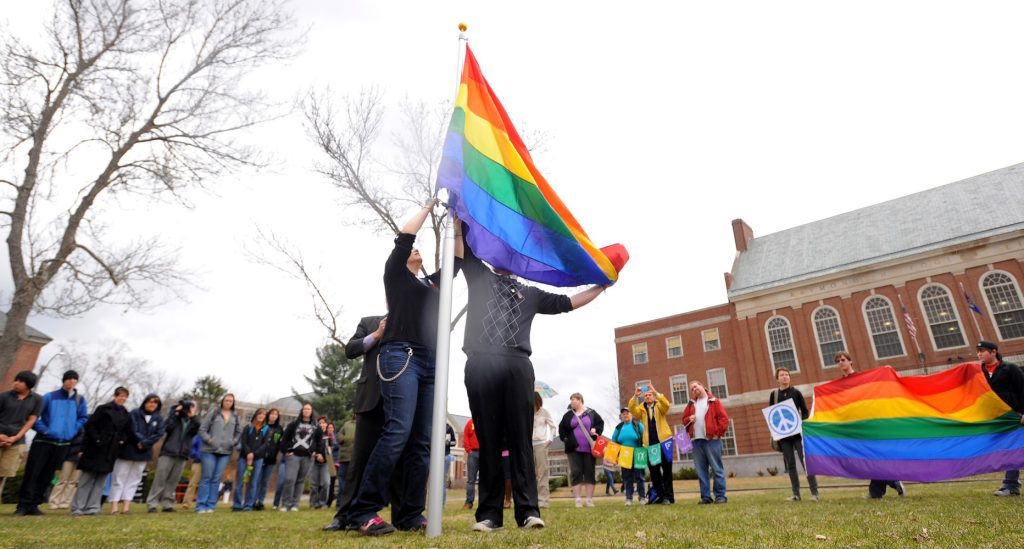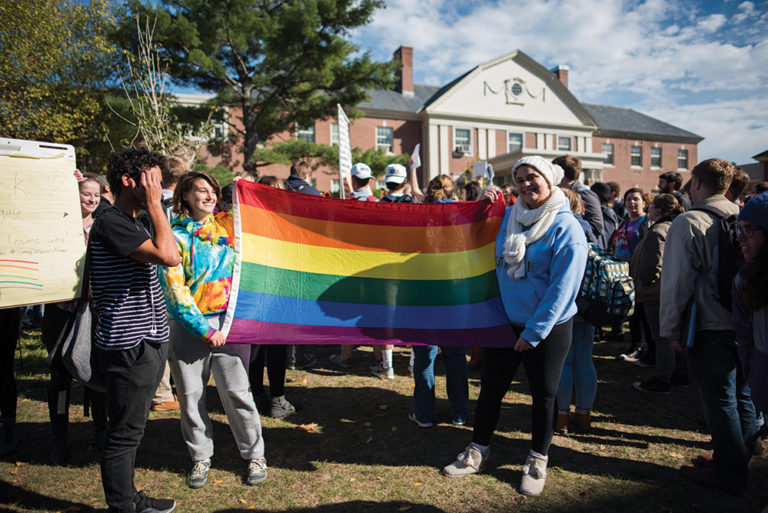In a bold move that stirred both support and criticism, Governor Ron DeSantis of Florida threw his weight behind a proposal that seeks to impose restrictions on the flags flown at schools and public buildings. The contentious bill, known as SB 1120, faced immediate backlash for its potential to limit flags representing political viewpoints. Despite the governor’s endorsement, the bill hit a roadblock as it stalled in a Senate committee only hours after gaining support.
Under the provisions of SB 1120, government agencies, public schools, colleges, and universities would be barred from flying flags that “represent a political viewpoint,” including those associated with “politically partisan, racial, sexual orientation and gender, or political ideology viewpoint.” The heated debate surrounding the bill has primarily revolved around concerns that it could prohibit the display of LGBTQ pride flags at public buildings.
Governor DeSantis, during a press appearance in Orange City, voiced his support for the bill, emphasizing a simplified approach. He suggested that limiting flag displays to the American flag and the state of Florida flag would avoid targeting any specific group. The governor asserted that such a stance wouldn’t amount to discrimination based on content but rather a decision not to engage in selective flag representation.
The bill encountered a tumultuous journey within hours of the governor’s endorsement. The Senate Governmental Oversight Committee, responsible for reviewing the proposal, heard from members of the public, the majority of whom expressed opposition to the bill. The committee, however, adjourned without voting on the legislation, putting its progress in jeopardy as the committee is not scheduled to reconvene.

Read more:
- Listeria Outbreak Hits 11 States: 2 Dead, Several Afflicted, Says CDC
- New York Businesses Navigate Credit Card Fee Changes: Transparency in Transactions
- Claim Your Share: New York State Holds $18.4 Billion in Unclaimed Funds
- Taylor Swift Takes Legal Action Over Florida Student Tracking Jet
Equality Florida, an LGBTQ advocacy group, was among the opponents who argued against the bill, contending that it unfairly singles out LGBTQ individuals by prohibiting the display of pride flags. The potential implications of the bill have raised concerns about whether it aligns with constitutional rights and the broader issue of freedom of expression.
Senator Tina Polsky, a Democrat from Boca Raton, scrutinized the bill’s language that prohibits flags representing a “political viewpoint.” She argued that the prohibitions listed in the bill pertain to groups of people, not inherently political viewpoints. Polsky emphasized the need for inclusivity rather than exclusivity, particularly in addressing aspects like race, gender, sexual orientation, and religion.
In a noteworthy exchange during the committee meeting, Polsky questioned the bill’s sponsor, Senator Jonathan Martin, about the potential prohibition of flags representing other countries at public buildings. Martin clarified that the bill does not cover such scenarios but expressed openness to discussing amendments to honor visitors from other countries.
A Senate staff analysis released prior to the meeting highlighted potential confusion regarding the bill’s scope. The analysis pointed out that while the bill provides examples of what constitutes a “political viewpoint,” it fails to define the term. Additionally, it raised questions about the distinction between government and private speech in the context of the proposed regulation.
The proposal, facing its second stall in the Senate committee, encountered procedural challenges. Chairman Bryan Avila, a Republican from Miami Springs, adjourned a meeting last week without taking a vote. The fate of the bill now rests in uncertainty, with procedural hurdles potentially hindering its advancement in the Senate.
A parallel House bill (HB 901) also awaits approval from the State Affairs Committee before proceeding to the full House. The controversy surrounding SB 1120 underscores the complexities and constitutional considerations associated with legislating the display of flags, highlighting the need for a nuanced and well-defined approach in addressing the concerns raised by both supporters and opponents of the proposed restrictions.

